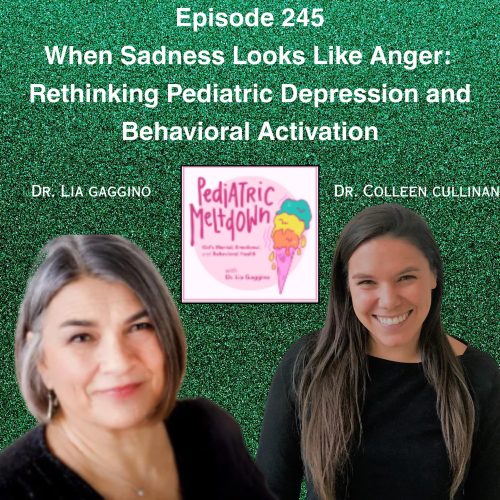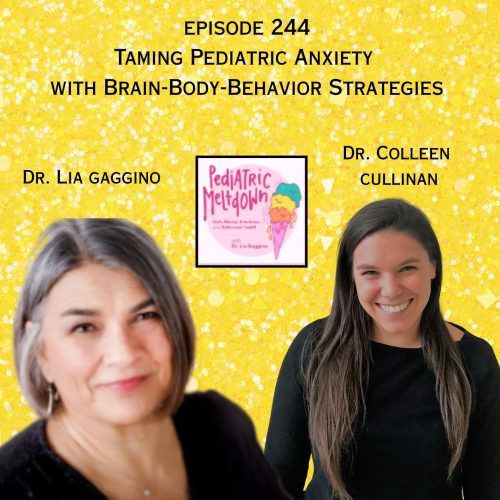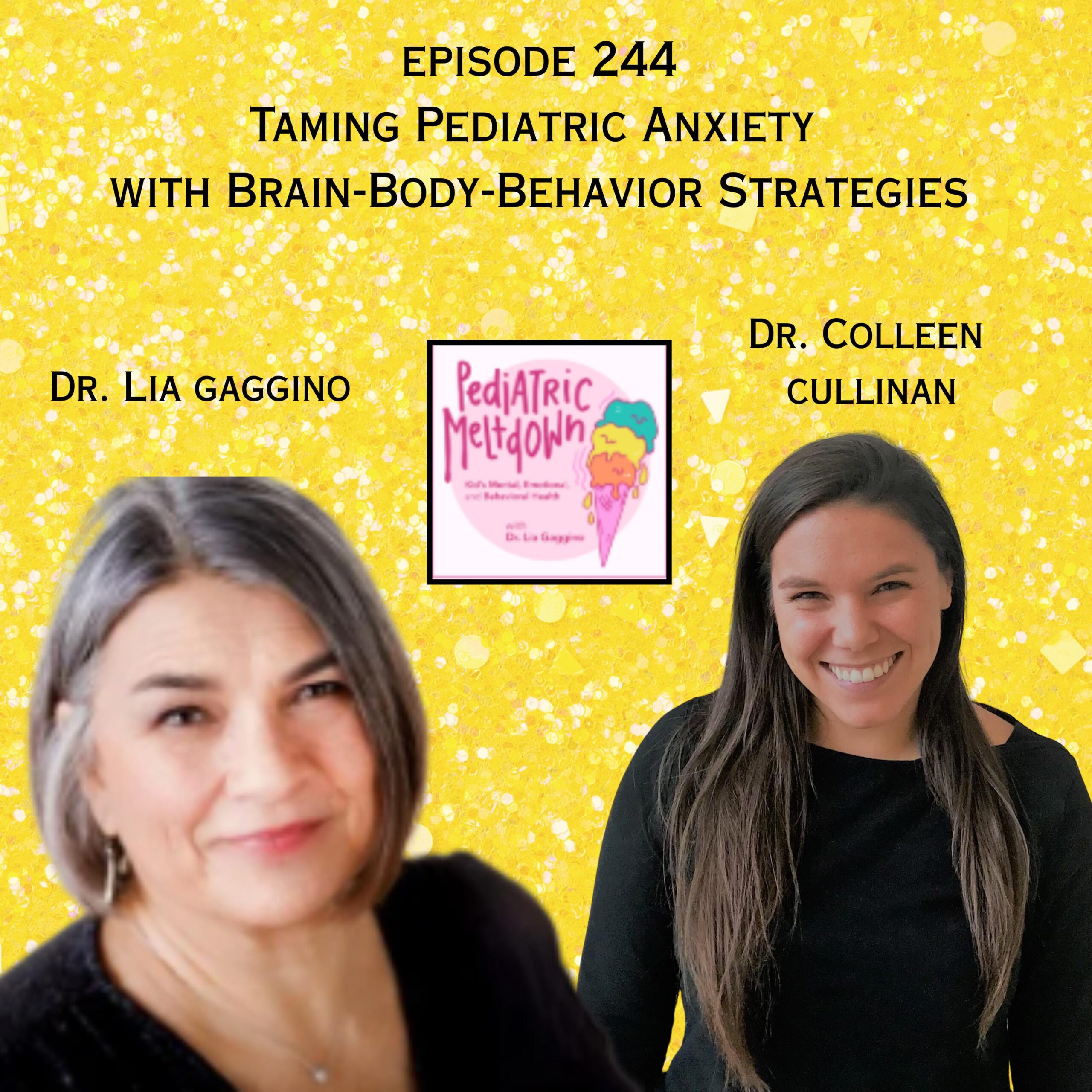Unless you’ve been a victim of Healthcare Disparity and systemic racism, you may not be aware that such a thing exists, and that’s exactly why this episode of “Pediatric Meltdown” is especially important for you to hear. Host Dr. Lia Gaggino and her guest Dr. Terri Major-Kincade, discuss the structural barriers that exist in hospitals and Dr. Terri will give some practical advice on being empathetic and listening to patients’ concerns. From Dr. Terri’s expertise in racial health disparities to Dr. Lia’s wisdom in pediatric mental health, this episode represents a step towards understanding and addressing the root causes of these issues. It’s clear that change is required to overcome the challenges in our healthcare system and provide equitable care for all. You’ll also hear about some creative ideas, everything from an Uber delivering breast milk to converting a convenience store into a Farmer’s Market. It’s solutions like these that tell us conversations around this issue must continue and more voices need to be heard to create the momentum required for change. We must recognize that health disparities are not only a moral issue but also an economic one that affects our entire society. By working together towards an overall change, we can create an equitable healthcare system that benefits everyone, regardless of their gender, race or socioeconomic status.
[00:33 -21:44] Disparities in Infant Mortality Rates
- Infant mortality rates in certain zip codes in New York City for black infants were higher than some third world countries.
- Black women with a college degree are still two times more likely to have an adverse birth outcome compared to white women with a GED in the United States
- Poverty and lack of prenatal care are not the only factors contributing to these disparities
- SES status (socioeconomic status) does not protect black women from experiencing adverse birth outcomes
- The way in which the healthcare system intersects with black women is a contributing factor to disparate care.
[21:45 – 37:29] Impact of Stress on Pregnancy and Childbirth
- Women who experience chronic stress have an increased likelihood of preterm birth
- Chronic stress can lead to remodeling of the cervix and womb, causing challenges during pregnancy
- Stress during pregnancy can also increase the risk of hypertension in children
- Normalizing the act of asking for help and saying no can help break the cycle of stress
- Chronic stress can also impact telomeres and shorten them, potentially leading to health issues
[37:30 – 50:26] Supporting a Grieving Family
- Offer condolences and express your willingness to help
- Listen actively and without judgment
- Use the child’s name and ask about their memory
- Maintain eye contact. Let them know that you hear them, you see them
- Respect the family’s wishes and boundaries, and avoid offering unsolicited advice or opinions
[50:27 – 57:21] Vision for a Better Future
- A future where conversations about race, color, and culture are unnecessary, but diversity is celebrated
- Emphasizing cultural humility can help us see people’s humanity rather than their circumstances
- Allocating more resources to preventive health and normalizing mental health services can lead to significant improvements
- Partnering with communities and addressing social determinants of health can help reduce health disparities
- Recognizing our own biases and being open to learning and growth can lead to positive change for everyone
[57:22 – 1:03:39] Closing segment Takeaway
You can reach Dr. Terri Major-Kincade
Website [email protected]
twitter @drterrimd
Instagram @doctorterrimd
LinkedIn: @drterrimd
Facebook@drterrimd
Books by Dr. Terri:
Early Arrival: 9 Things Parents Need to Know About Life in the ICU Nursery A Doctor’s Step-by-Step Guide. https://www.amazon.com/Early-Arrival-Parents-Step-Step/dp/1948400553/ref=sr_1_2?qid=1683573389&refinements=p_27%3ADr.+Terri+Major-Kincade&s=books&sr=1-2
Full Circle Moments: What 20 Years in Neonatology Taught Me About Life, Love & Loss
Resources:
Achieving Health Equity: A Guide for Healthcare Organizations https://www.ihi.org/resources/Pages/IHIWhitePapers/Achieving-Health-Equity.aspx
Addressing the Social Determinants of Health https://pubmed.ncbi.nlm.nih.gov/20168027/
Why Your Zip Code Matters More than your Genetic Code https://pubmed.ncbi.nlm.nih.gov/27513279/
Other episodes you may like:
111 Health is a Human Right: Why Are We Falling Behind?
114 Palliative and Hospice Care: A Conversation on Grief and Joy
Key quotes for Twitter:
“Even if I have access to prenatal care, even if I’m taking care of myself and I’m in great shape, even if I take my prenatal vitamin, even if I have good insurance. Even if I deliver in the hospital in the United States, I could still be sitting in front of someone who has decided I don’t deserve the same standard of care.”… Dr. Terri Major-Kincade
“They were able to actually get a grant to fund somebody to drive an Uber. They call it their breast milk Uber to go around and pick up the milk from these moms so their babies get milk. I mean, how cool is that?””… Dr. Terri Major-Kincade
THANK YOU FOR YOUR SUPPORT!
Pediatric Meltdown was listed as a Top 20 Pediatric Podcast on FeedSpot.
If you’d like to connect with me, you can Tap the “What Are Your Thoughts” button at the top of the notes or you can find me on LinkedIn, Facebook, Instagram, and Twitter, or email me at [email protected] or [email protected]. To learn more about me visit https://www.medicalbhs.com/
LOVE WHAT YOU HEARD? Leave us a 5-star review so we can continue to provide you with great content. Share this episode and help people know more about children’s health and well-being.








